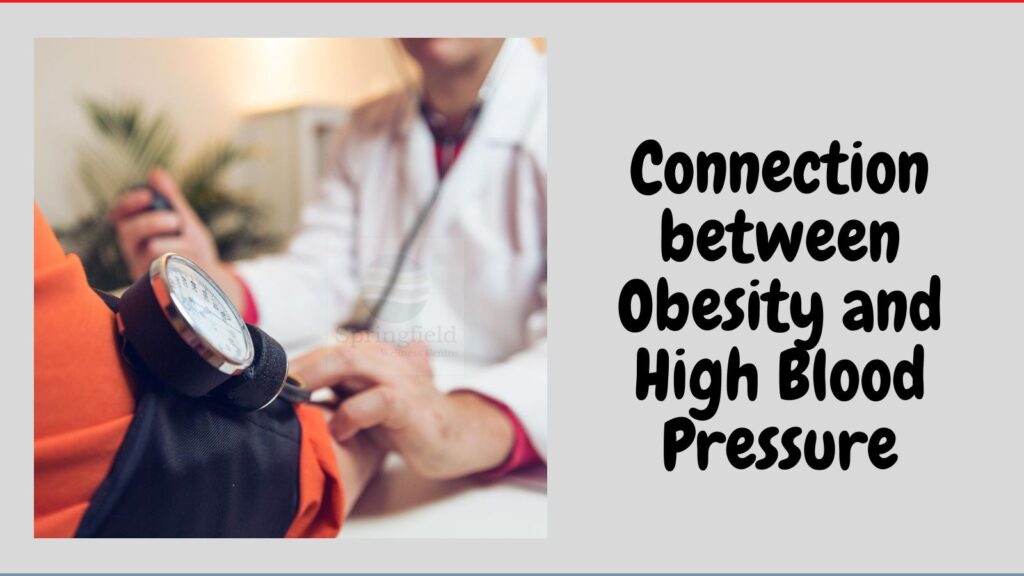Hypertension, called high blood pressure in common parlance, is a condition where the blood flows at a higher than the normal pressure through the arteries. Presence of high blood pressure can lead to many medical conditions. While there are many reasons why someone can get high blood pressure, obesity has been proved to be one of the important factors. Let us discuss in length the connection between obesity and high blood pressure.
What can Hypertension do to your health?
- Strokes are the biggest medical problem that can arise due to high BP
- Heart attack is the next biggest medical issue
- Problems in either of the kidneys or both. Chronic kidney diseases are a result of high BP. HIgh BP is one of the leading cause of kidney failure incidents
- Brain and Cognitive Problems. It is common that memory, concentration and other cognitive functions decline faster among people who have high blood pressure. The risk of getting dementia is higher in people with high BP.
To have a normal blood pressure, Systolic blood pressure should be below 140 and the Diastolic blood pressure should be around 90.
How does Obesity cause Hypertension?
There is enough proof that obesity can induce hypertension in people who do not have hypertension. It also worsens the high BP already present in an obese individual.
The presence of fat tissues, visceral fat included, can cause many changes in the body that can act as a catalyst to induce hypertension or worsen the already present hypertension. The changes induced and their effects are briefly discussed under each header.
Overworking of the Heart
The heart of an obese person has to struggle to pump extra in high pressure so that blood can reach all parts of the body. This definitely puts extra strain on the heart and this is one of the reasons why heart diseases are also common among the obese. This extra pressure on the heart leads to something called Resistant Hypertension, a condition where there is uncontrolled blood pressure.
Sympathetic Nervous System Overactivation
The sympathetic nervous system, often called the fight-or-flight system, plays an important role in the body’s metabolism and heart health. The stored fat, especially in the belly area, causes higher levels of certain hormones to be secreted. These hormones cause the sympathetic nervous system to become overactive, leading to insulin resistance and at times organ damage.
Stimulation of the renin-angiotensin-aldosterone (RAAS) system
The Renin-angiotensin-aldosterone system, also called the RAAS, helps to regulate blood volume and pressure across the entire body. In an obese individual, the RAAS system does not function properly. This causes the blood pressure to remain elevated for a longer time period. One more effect obesity has on RAAS is its ability to influence the levels of all the hormones in the RAAS. When the levels are disturbed and when there is an imbalance as a result, it automatically leads to High BP.
Renal or Kidney Compression and the Resultant Changes in Kidney Function
People with obesity carry a higher proportion of visceral fat, which is the fat in their abdominal area. The presence of visceral fat puts pressure on the internal abdominal organs and the kidneys are no exception. This increases the pressure on the kidneys. The main function of the kidneys are excreting excess water and regulating the salt level present in the body. These two primary functions of the kidneys regulate blood pressure. When both the kidneys are squeezed and pressurized for a long time, they become less efficient at their primary function of absorbing and excreting water and salt. So when they are unable to, that is when the regulation of blood pressure takes a hit and there is high BP.
Leptin Resistance
Obese individuals often have leptin resistance and are more likely as a result to eat a lot and still feel hungry, leading to more weight gain. More fat cells create more leptin and as a result the body becomes increasingly tolerant and develops leptin resistance. Many studies have pointed out that leptin levels can affect the blood pressure. Higher the leptin level, higher the blood pressure.
When an obese individual has developed hypertension as a result of obesity or has made his or her existing hypertension worse by becoming more obese, that is why the doctors ask them to reduce their weight to bring their blood pressure under control.
